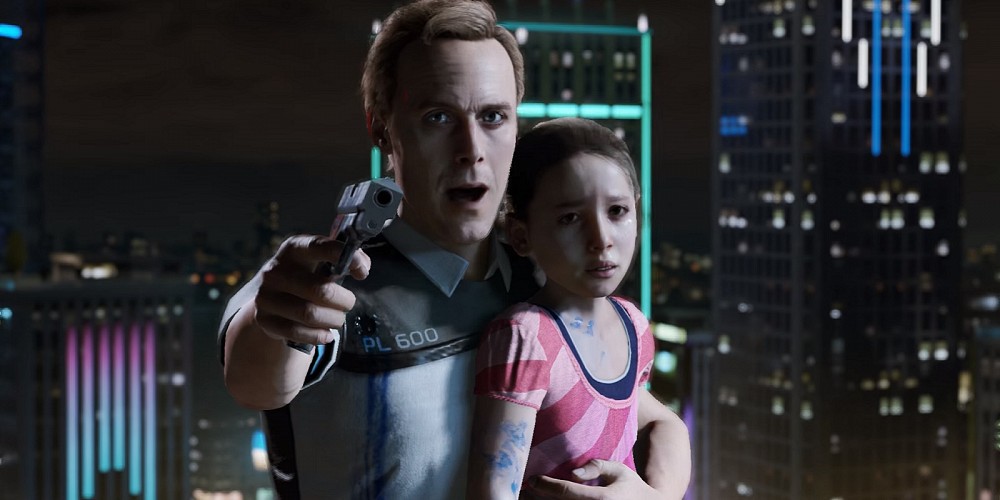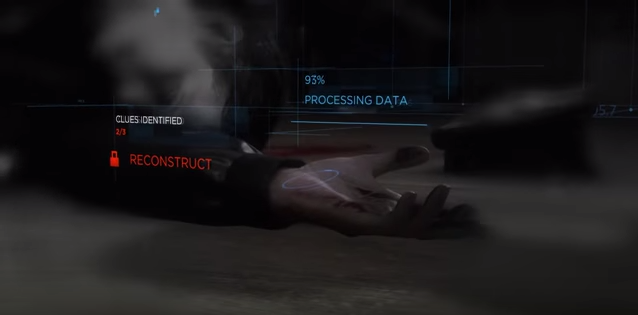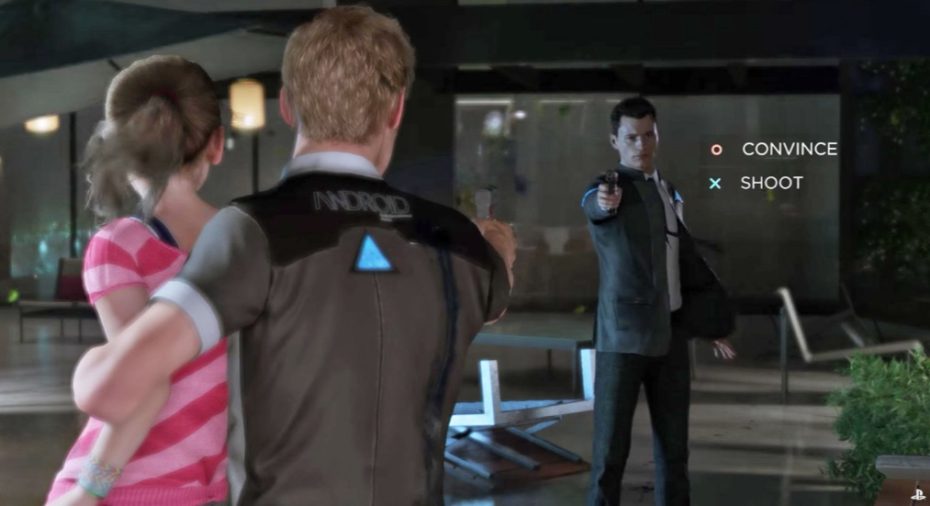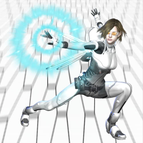Detroit: Become Human: do androids dream of electric detectives?

For me, the best parts of Heavy Rain, David Cage’s multilayered mystery about a difficult to pronounce killer, were those of FBI agent Norman Jayden, where you used high tech gadgets to find and analyze clues. The demo of Detroit: Become Human I saw built upon those relatively simple investigative bones in some very interesting sophisticated ways, giving the player freedom to follow whichever lines of inquiry they preferred - and also to screw up royally in the process.
Let’s back up a bit: it’s the near future, and humanoid androids are serving humanity through a variety of different jobs, like teacher or nurse. They may look like people, but they don’t have any emotions, or at least aren’t supposed to. Recently, however, androids have been going missing or destroying themselves. Daniel, caregiver for a little girl, certainly seems to have been feeling something when he shot his owner and dragged his young charge at gunpoint over to the ledge of the balcony. Our hero Connor is another android working with the police to save the girl at all costs, and that’s where your detective skills come in.

There are plenty of avenues of investigation in the apartment - examine the victim’s body, interrogate Daniel, search the little girl’s room, talk to the on-site police - but you can’t take the time to go through them all. Connor’s computer brain not only can analyze the materials you find, he can also estimate the chance he’ll be able to complete his mission. When the demo begins, he’s got a 50/50 shot of rescuing the girl, but the longer he takes to resolve the situation, the more likely it is that resolution will be messy.
Finding clues in detective games usually goes one of two ways: either it’s up to you to figure out what you need to look at, or everything is highlighted and glowing for you. Detroit splits the difference; Connor android brain can easily pick out items of interest in the room, but it’s up to the player to decide what’s important and what isn’t. No more methodically picking up everything and putting it back down - you’re actually going to have to think.
Connor can also use what he’s learned to digitally recreate events and view them from different angles, which may lead him to to information. Recreating the moment when Daniel shot his owner and then viewing it from the front leads to the discovery that the man was holding something when Daniel shot him...something that explains why Daniel defied his programming.

David Cage says he didn’t want Detroit: Become Human to fall into the typical trope of “humans good/robots bad,” and so every character you play in the game will be an android, and each and every one of them can die, depending on the choices you make. There’s no failure, per se, but there will be “narrative consequences to your actions.” One way to save the little girl, for example, is to sacrifice Connor by charging Daniel and taking him with you over the ledge. Noble, certainly, but...maybe you’d like to take a better look around the apartment first.
The small portion of Detroit that I saw was exactly what my armchair sleuth has always wanted, but who knows how representative it is of the final game. Cage was, if you’ll pardon the pun, cagey, not saying much about the overall story or other characters you might embody throughout the story. We also have to remember that much of what he was saying about Detroit - exciting though it was - has been said about his previous games Heavy Rain and Beyond: Two Souls, neither of which were entirely successful. The idea is sensational and the execution of that idea is, so far, outstanding, but it’s a David Cage game, so who knows?
Weekly digests, tales from the communities you love, and more
Susan was once Managing Editor US at GamesRadar, but has since gone on to become a skilled freelance journalist, editor, producer, and content manager. She is now 1/3 of @Continuepod, 1/2 of @BeastiesLl, co-founder of @TakeThisOrg, and Apex Editor, Fluid Group.



